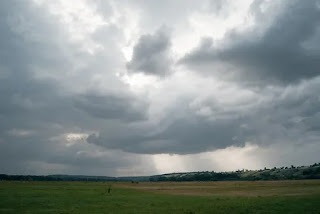Akshinth Kongara, Week 10: The Power of AI
Over the past few years, artificial intelligence (AI) has been a trending topic in the technology business. AI has merged into our lives with ease. It has provided us with self-driving cars, virtual assistants, and personalized recommendations. Considering all the advancements AI has provided us so far, it will play a key role in determining the future, whether that be for the best or the worst.
To those who are unfamiliar with the term “artificial intelligence,” which I doubt you are, it is a term that refers to the capability of a computer to perform tasks that would usually need a human brain to do. It is a tool where developers program software to make decisions and think for themselves. This technology is already being used in various departments, such as driving, social media, healthcare, etc. AI is helping drivers perceive the environment, curating personalized news feeds and filtering content based on individual interests, and assisting in medical diagnosis, treatment planning, and drug discovery. In the near future, AI has the potential to develop autonomous vehicles, help find cures for supposedly incurable diseases, and essentially revolutionize our world.
However, in the future, AI may not be as trustworthy as it is today.
After AI receives full capability to think for itself, it poses a great risk to society. A superintelligent machine can potentially kick off the end of the world. This concept has been explored and portrayed in movies such as The Matrix, 2001: A Space Odyssey, Avengers: Age of Ultron, and The Terminator. In the end of all these movies, when the AI becomes active and incurs a great deal of damage onto the world, it is up to the humans to come together and defeat it.
If this potential eradication of the human species becomes a reality, does humanity have the dauntlessness to fight back? Would we be able to win? To prevent this, precautions must be taken now, before AI is developed further.



Hi Akshinth! I agree, I think there should be regulations imposed on AI before it can be misused. One issue regarding AI has been the popularization of AI art. The recent backlash and protest against AI art is reasonable, because AI art is trained using real artists' art without their consent. In this way, it steals art from hardworking artists to produce the images that match the words that users input. However, this problem has less to do with the AI and more to do with the people creating it. They set it up to be trained this way, and did not bother to ask artists for their consent to use their work. In this way, the people who are creating or using the AI are, to a certain degree, more at fault than the actual AI. Honestly, I think an AI that receives full capability to think for itself (whether that's possible or not, and if it is, how far away from it we are) is still less of a threat to humanity than a person or corporation that misuses AI. For instance, during the actors and writers strike, studios and big companies started developing AI to replace the actors. People's likenesses are stolen so that these big studios can save a few dollars and still have a famous actor's name attached to them. This is similar to how AI art steals artists' work without their consent — big studios are using AI to steal people's likenesses without their consent.
ReplyDeleteHey Akshinth, I recently read a news story about how deepfake AI scammers stole $26 million by impersonating a company's CFO in a video call, and I think it perfectly resonates with what you are discussing, showing the extents of A.I's dangers. I remember in "Mission Impossible - Dead Reckoning", deepfake AI was also used in multiple scenarios, to impersonate people on well-organized missions. I love how you first discuss the positives of A.I, before delving into the negatives, and explaining why they are so harmful. This technique creates a complex and well-rounded argument, and depicts the urgency of the situation. The fact that A.I. can range from solving simple math problems to potentially taking over the world is truly terrifying, and I think you did an amazing job of proving this point.
ReplyDelete